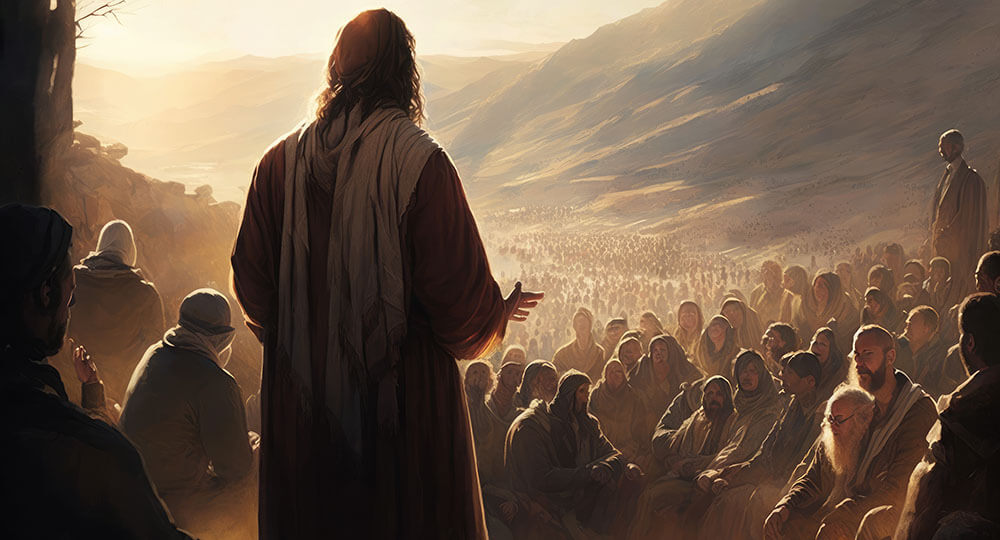Sermon on the Mount
One of the most often-quoted passages in the New Testament is Jesus’ Sermon on the Mount (Mt. 5—7). Delivered to His disciples atop a mountain near Capernaum in Galilee, it contains many allusions to the Hebrew text. Here are but a few:
• Meekness (Mt. 5:5; cf. Ps. 37:11).
• Anger/Murder (Mt. 5:21; cf. Ex 20:13; Dt. 5:17).
• Lust/Adultery (Mt. 5:27; cf. Ex. 20:14; Dt. 5:18).
• Divorce (Mt. 5:31–32; cf. Dt. 24:1).
• Perjury (Mt. 5:33–34; cf. Ex. 20:7; Lev. 19:12).
• Retaliation (Mt. 5:38; cf. Ex. 21:24; Lev. 24:20; Dt. 19:21).
• Enemies (Mt. 5:43; cf. Dt. 23:3–6; Ps. 41:10).
• Law. Jesus declared, “Do not think that I came to destroy the Law or the Prophets. I did not come to destroy but to fulfill. For assuredly, I say to you, till heaven and earth pass away, one jot or one tittle will by no means pass from the law till all is fulfilled” (Mt. 5:17–18).
Jesus fulfilled the Law and the prophecies. He kept the Law perfectly because He was God; and He was condemned in our place: “For He made Him who knew no sin to be sin for us, that we might become the righteousness of God in Him” (2 Cor. 5:21).
Messiah Jesus took our sin that we might receive His righteousness. When we place our faith in Him, God places us “in Christ,” imputing His righteousness to us. That is why Christ “is the end of the law for righteousness to everyone who believes” (Rom. 10:4).








